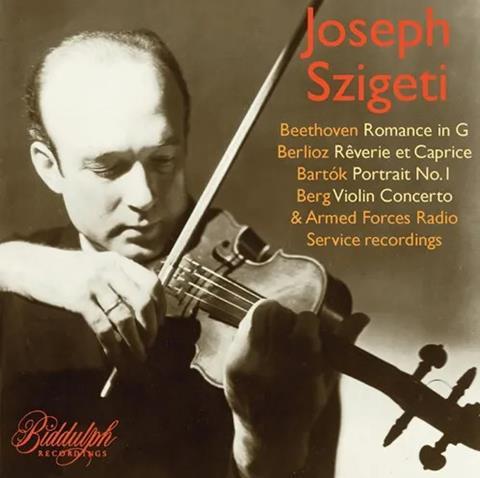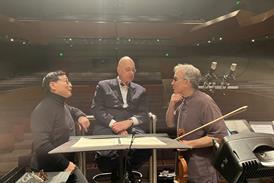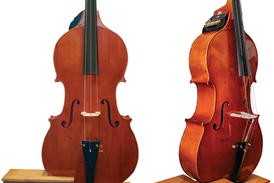The Berg concerto is the standout in a wide-ranging album

The Strad Issue: July 2024
Description: The Berg concerto is the standout in a wide-ranging album
Musicians: Joseph Szigeti (violin) unknown (piano) Philharmonia Orchestra/Constant Lambert; NBC Symphony Orchestra/Dimitri Mitropoulos; WOR Symphony Orchestra/ Alfred Wallenstein; San Francisco Symphony Orchestra/Leonard Bernstein
Works: Bartók: Portrait no.1. Beethoven: Romance no.1. Berg: Violin Concerto. Berlioz: Rêverie et Caprice. Corelli: Sonata in D minor ‘La folia’ (arr. Léonard); works by Brahms, Dvorák, Hubay, Schubert, Stravinsky and Tchaikovsky
Catalogue number: BIDDULPH 85045-2
This mixed bag revives Joseph Szigeti’s legendary 1945 live performance of Berg’s Vioin Concerto, in much better sound than a previous Music & Arts release. It is only the fourth recording of this work that we have, after those by its commissioner Louis Krasner with Anton Webern, Fritz Busch and Artur Rodzinski.
Newcomers to Szigeti’s art need to be forewarned about his vibrato. He started out employing virtually none, but during the years when he worked on this aspect of his playing, he adopted the rather wide vibrato of his teacher Hubay. After about 1940 his vibrations loosened a little, as can be heard on some of these 1941–6 recordings. I am not bothered by it in the Berg, indeed I find his playing very sympathetic – and he could not have a better collaborator than Mitropoulos. The likes of Krasner, Kogan, Grumiaux and Faust may bring a purer tone to Berg, but Szigeti represents an important stage in the work’s performance history.
Read: Great string players of the past: violinist Joseph Szigeti
Read: The teaching wisdom of violinist Joseph Szigeti
Read: Lessons with Szigeti
The 1946 studio records with Constant Lambert of Berlioz’s Rêverie et Caprice and Bartók’s First Portrait are classics, beautifully played.
Beethoven’s First Romance from 1945 with Bernstein cannot compete with Adolf Busch’s commanding 1942 version with Wallenstein, while I found the Corelli-Léonard ‘La folia’ rather tedious.
Earlier Szigeti records of the short pieces can be found, with more ‘together’ vibrato. That said, Tchaikovsky’s Valse sentimentale comes off surprisingly well, and Szigeti can still toss off François Schubert’s annoying bee, Brahms’s Fifth Hungarian Dance, the Stravinsky-Dushkin ‘Danse russe’ and Hubay’s ‘Zephyr’, while the Schubert-Friedberg Rondo has nice bounce and the Dvořák–Kreisler G minor Slavonic Dance due style.
TULLY POTTER









































No comments yet